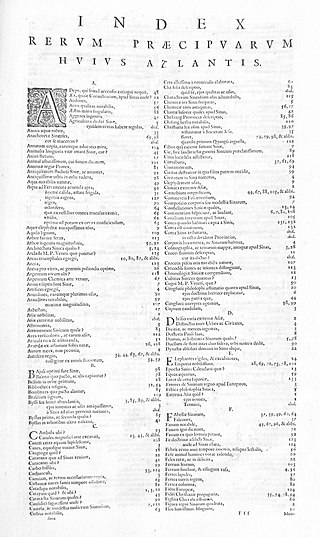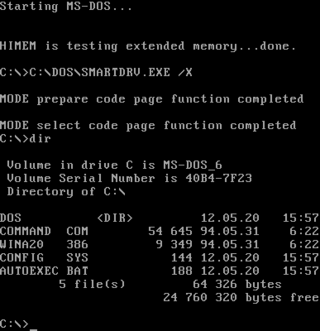Related Research Articles

MusicBrainz is a MetaBrainz project that aims to create a collaborative music database that is similar to the freedb project. MusicBrainz was founded in response to the restrictions placed on the Compact Disc Database (CDDB), a database for software applications to look up audio CD information on the Internet. MusicBrainz has expanded its goals to reach beyond a CD metadata storehouse to become a structured online database for music.
New Technology File System (NTFS) is a proprietary journaling file system developed by Microsoft. Starting with Windows NT 3.1, it is the default file system of the Windows NT family. It superseded File Allocation Table (FAT) as the preferred filesystem on Windows and is supported in Linux and BSD as well. NTFS reading and writing support is provided using a free and open-source kernel implementation known as NTFS3 in Linux and the NTFS-3G driver in BSD. By using the convert command, Windows can convert FAT32/16/12 into NTFS without the need to rewrite all files. NTFS uses several files typically hidden from the user to store metadata about other files stored on the drive which can help improve speed and performance when reading data. Unlike FAT and High Performance File System (HPFS), NTFS supports access control lists (ACLs), filesystem encryption, transparent compression, sparse files and file system journaling. NTFS also supports shadow copy to allow backups of a system while it is running, but the functionality of the shadow copies varies between different versions of Windows.

Data mining is the process of extracting and discovering patterns in large data sets involving methods at the intersection of machine learning, statistics, and database systems. Data mining is an interdisciplinary subfield of computer science and statistics with an overall goal of extracting information from a data set and transforming the information into a comprehensible structure for further use. Data mining is the analysis step of the "knowledge discovery in databases" process, or KDD. Aside from the raw analysis step, it also involves database and data management aspects, data pre-processing, model and inference considerations, interestingness metrics, complexity considerations, post-processing of discovered structures, visualization, and online updating.

SRI International (SRI) is an American nonprofit scientific research institute and organization headquartered in Menlo Park, California. The trustees of Stanford University established SRI in 1946 as a center of innovation to support economic development in the region.
LexisNexis is a part of the RELX corporation that sells data analytics products and various databases that are accessed through online portals, including portals for computer-assisted legal research (CALR), newspaper search, and consumer information. During the 1970s, LexisNexis began to make legal and journalistic documents more accessible electronically. As of 2006, the company had the world's largest electronic database for legal and public-records–related information.

An index is a list of words or phrases ('headings') and associated pointers ('locators') to where useful material relating to that heading can be found in a document or collection of documents. Examples are an index in the back matter of a book and an index that serves as a library catalog. An index differs from a word index, or concordance, in focusing on the subject of the text rather than the exact words in a text, and it differs from a table of contents because the index is ordered by subject, regardless of whether it is early or late in the book, while the listed items in a table of contents is placed in the same order as the book.

Google Scholar is a freely accessible web search engine that indexes the full text or metadata of scholarly literature across an array of publishing formats and disciplines. Released in beta in November 2004, the Google Scholar index includes peer-reviewed online academic journals and books, conference papers, theses and dissertations, preprints, abstracts, technical reports, and other scholarly literature, including court opinions and patents.

The Legal Information Institute (LII) is a non-profit, public service of Cornell Law School that provides no-cost access to current American and international legal research sources online at law.cornell.edu. The organization is a pioneer in the delivery of legal information online. Founded in 1992 by Peter Martin and Tom Bruce, LII was the first law site developed on the internet. LII electronically publishes on the Web the U.S. Code, U.S. Supreme Court opinions, Uniform Commercial Code, the US Code of Federal Regulations, several Federal Rules, and a variety of other American primary law materials. LII also provides access to other national and international sources, such as treaties and United Nations materials. According to its website, the LII serves over 40 million unique visitors per year.

ArcGIS is a family of client, server and online geographic information system (GIS) software developed and maintained by Esri. ArcGIS was first released in 1999 and originally was released as ARC/INFO, a command line based GIS system for manipulating data. ARC/INFO was later merged into ArcGIS Desktop, which was eventually superseded by ArcGIS Pro in 2015. ArcGIS Pro works in 2D and 3D for cartography and visualization, and includes artificial Intelligence (AI).

A search engine is a software system designed to carry out web searches. They search the World Wide Web in a systematic way for particular information specified in a textual web search query. The search results are generally presented in a line of results, often referred to as search engine results pages (SERPs). When a user enters a query into a search engine, the engine scans its index of web pages to find those that are relevant to the user's query. The results are then ranked by relevancy and displayed to the user. The information may be a mix of links to web pages, images, videos, infographics, articles, research papers, and other types of files. Some search engines also mine data available in databases or open directories. Unlike web directories and social bookmarking sites, which are maintained by human editors, search engines also maintain real-time information by running an algorithm on a web crawler. Any internet-based content that cannot be indexed and searched by a web search engine falls under the category of deep web.
James Patrick O'Shaughnessy is an American investor and the founder, chairman, and chief investment officer of O'Shaughnessy Asset Management, LLC (OSAM), an asset management firm headquartered in Stamford, Connecticut.
Microsoft SQL Server is a relational database management system developed by Microsoft. As a database server, it is a software product with the primary function of storing and retrieving data as requested by other software applications—which may run either on the same computer or on another computer across a network. Microsoft markets at least a dozen different editions of Microsoft SQL Server, aimed at different audiences and for workloads ranging from small single-machine applications to large Internet-facing applications with many concurrent users.
FindArticles was a website which provided access to articles previously published in over 3,000 magazines, newspapers, journals, business reports and other sources. The site offered free and paid content through the HighBeam Research database. In 2007, FindArticles accessed over 11 million resource articles, going back to 1998.

Metadata is "data that provides information about other data", but not the content of the data, such as the text of a message or the image itself. There are many distinct types of metadata, including:

In the pursuit of knowledge, data is a collection of discrete values that convey information, describing quantity, quality, fact, statistics, other basic units of meaning, or simply sequences of symbols that may be further interpreted. A datum is an individual value in a collection of data. Data is usually organized into structures such as tables that provide additional context and meaning, and which may themselves be used as data in larger structures. Data may be used as variables in a computational process. Data may represent abstract ideas or concrete measurements. Data is commonly used in scientific research, economics, and in virtually every other form of human organizational activity. Examples of data sets include price indices, unemployment rates, literacy rates, and census data. In this context, data represents the raw facts and figures which can be used in such a manner in order to capture the useful information out of it.

DOS is a platform-independent acronym for "disk operating system" that later became a common shorthand for disk-based operating systems on IBM PC compatibles. DOS primarily consists of Microsoft's MS-DOS and a rebranded version under the name IBM PC DOS, both of which were introduced in 1981. Later compatible systems from other manufacturers include DR DOS (1988), ROM-DOS (1989), PTS-DOS (1993), and FreeDOS (1998). MS-DOS dominated the IBM PC compatible market between 1981 and 1995.

The Hugo Award is an annual literary award for the best science fiction or fantasy works and achievements of the previous year, given at the World Science Fiction Convention and chosen by its members. The Hugo is widely considered the premier award in science fiction. The award is administered by the World Science Fiction Society. It is named after Hugo Gernsback, the founder of the pioneering science fiction magazine Amazing Stories. Hugos were first given in 1953, at the 11th World Science Fiction Convention, and have been awarded every year since 1955.

Findmypast is a UK-based online genealogy service owned, since 2007, by British company DC Thomson. The website hosts billions of searchable records of census, directory and historical record information. It originated in 1965 when a group of genealogists formed a group named "Title Research". The first internet website went live in 2003.
The history of Microsoft SQL Server begins with the first Microsoft SQL Server database product – SQL Server v1.0, a 16-bit relational database for the OS/2 operating system, released in 1989.
References
- ↑ Roy M. Mersky; Donald J. Dunn (2002). Legal Research Illustrated: An Abridgment of Fundamentals of Legal Research, Eighth Edition. Foundation Press. pp. 365–. ISBN 978-1-58778-066-0.
- 1 2 Kent C. Olson (1999). Legal Information: How to Find It, how to Use it. ABC-CLIO. pp. 73–. ISBN 978-0-89774-963-3.
- ↑ "Internet research database shows actual contents". Archived from the original on September 25, 2006. Retrieved 2007-09-04.
- ↑ "IndexMaster Receives 2000 AALL Best New Product Award". 2000-07-07. Archived from the original on 2010-07-16. Retrieved 2007-09-04.